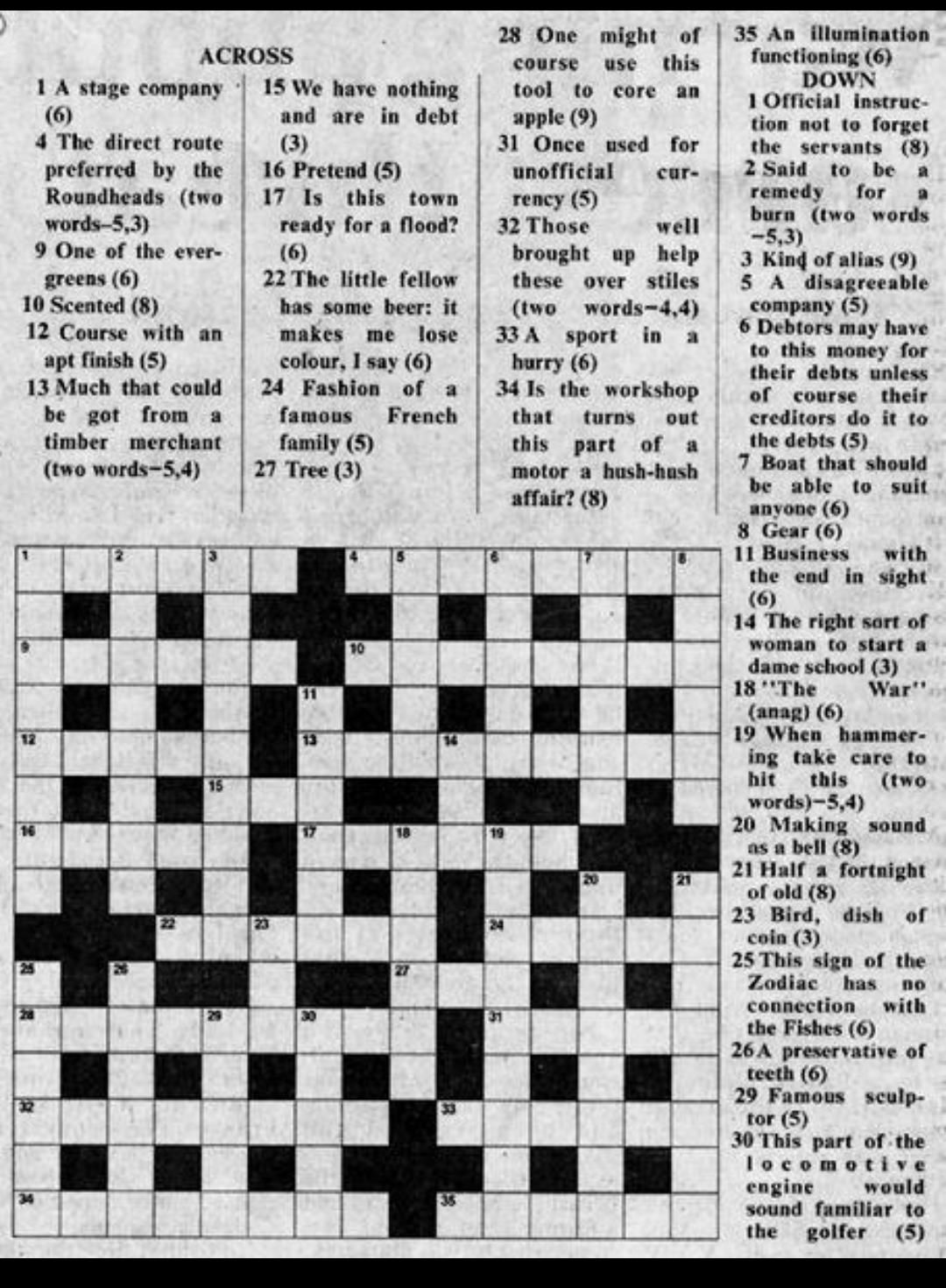Anyone familiar with newspaper crossword puzzles knows that anyone with even only a modicum of intelligence can solve even the most difficult puzzles, given a little perseverance / (years of) practice. Crossword puzzle afficionados have long since memorized all the obscure words that tend to crop up in puzzles.
The same could be said of expert Scrabble players: The have memorized all of the two-letter words needed to add on to words already on the board, and understand that 1) the positioning of words on the board to maximize scores and 2) strategy (e.g., denying one's opponent easy wins) are of more importance than mere vocabulary.
In the movie The Imitation Game, by the time Turing - who, it is emphasized, has zero German-language skills - approves the publication of the crossword puzzle in order to procure suitable candidates for induction into their "code-breaker" team, he is already working on "Christopher" (the computer). In other words: It is already clearly established that, by this point in time of the story, Turing understands that linguistic talents (e.g., a fluency in languages - incl. the German language) are utterly unimportant in breaking Enigma.
Then why does he favor the use of this method (publishing a crossword puzzle which candidates must complete within 10 minutes) - it's actually implied that he conceived of this method himself - to find potential code-breakers?
Shouldn't he instead have been scouring the universities, looking for students of Philosophy and Logic (Bayesian Logic, anyone?) and Game Theory to fill the ranks of his team?

